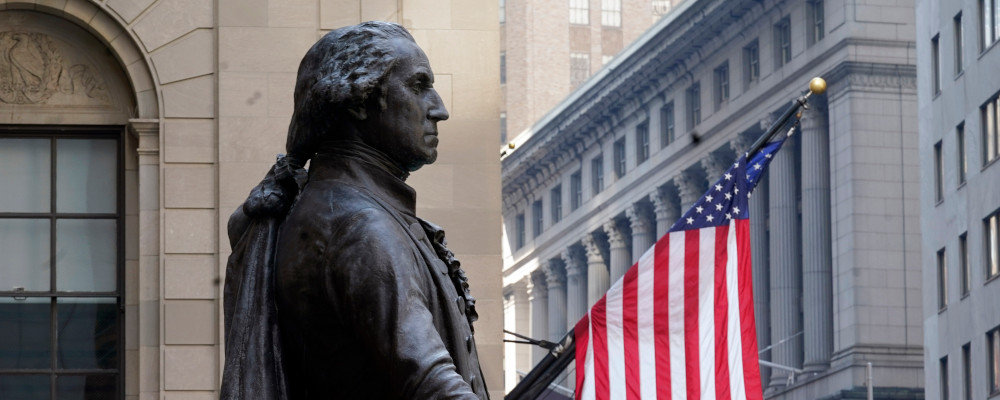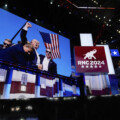As news broke that Hamas terrorists had attacked Israel, and as it became clear Israel would have to fight back, pro-Israel advocates awaited Canadian reactions with trepidation. It shouldn’t be shocking, perhaps, that Zionists would be concerned about the response from progressive Canada, including its chief political representatives in the Liberal and New Democratic parties.
But it may surprise some—especially those who oversimplify and caricature the Canadian Right—to know that pro-Israel advocates harboured some concern about how conservatives, and their political representatives in the Conservative Party, would react. It shouldn’t be hard to understand why. For at least a decade, longer in the United States, the three-legged stool that made up a coherent, durable right-of-centre voting coalition—fiscal conservatives, social conservatives, and foreign policy hawks—has been kicked over.
Intra-conservative ideological debates have split in two, pitting inward-looking populists against globalist elites, and leaving advocates for assertive foreign policy—like a strong stance in favour of Israel—concerned that when the going got tough, the populist conservatives would be indifferent, or worse, opposed.
One only has to look at the fractured response of American Republicans to the war in Ukraine to see this dynamic realized. Broad-based support for Ukraine amongst various conservative commentators, political leadership, and the party’s base has been shaky even from the outset of the initial invasion, and as the conflict persists there are growing calls, incoherent though they may be, from some corners of the American Right for the withdrawal of all aid whatsoever. Would this aversion to foreign engagement of any kind carry over to the West’s response to the Israel-Hamas war?
On this matter, though, concern turned out to be short-lived, at least here at home. Canadian conservatives have, by and large, responded in solidarity with Israel, supporting its right to self-defence, condemning Hamas terrorists, calling for Israeli hostages to be returned home, and fighting back against disturbing antisemitism. While a decade of domestic economic and cultural turmoil drove conservatives apart, pitting social conservatives against fiscal conservatives and blue-collar populists against corporate institutionalists, high-stakes geopolitical turmoil—and all its moral consequences—has brought the conservative coalition together, even as it has driven progressives apart.
Only a few years ago, as Donald Trump was governing the U.S. and the U.K. was exiting the European Union, young Canadian conservatives were questioning everything about the recipe for ideological coherence and political success we were raised on. As free trade and new technology hollowed out domestic manufacturing, the pro-globalization, anti-labour posture of our intellectual forebearers felt unfit for the times. As inflation rose because of bad monetary policy and civil liberties were abused during the global pandemic, the faith and trust in institutions that were so core to our traditions rang hollow.
Canadian conservatives knew the answers didn’t lie with the big-spending, high-regulation economic policy or virtue-signaling, equity-protecting social programs of the Liberals or the NDP, but we struggled to articulate a coherent and compelling alternative. Through three leadership campaigns, Conservatives split along various ideological lines, struggling to articulate a coherent, relevant vision in between. Ultimately, Pierre Poilievre developed a compelling synthesis: a FreeCon attack on big spending and a NatCon attack on the Left’s woke culture war, drawing libertarians, fiscal conservatives, and social conservatives into his coalition and crushing his leadership race competitors.
Poilievre’s command of the Conservative party, and the irrelevance of the right-wing PPC, speak to the power of his synthesizing political program. It’s not at all clear that the synthesis was inevitable, especially given the inability of American conservatives to agree to leadership in the House of Representatives, let alone to choose a unifying Republican party nominee, so his big tent ought to be applauded.
But during and since Poilievre’s big win, a certain kind of critic has remained. They are often men and almost always of a certain age. These concerned boomer elites are easy to mock and dismiss. And on domestic economic matters, the mocking is often warranted. These critics own homes (probably outright), live in urban centres, and are unlikely to have school-aged kids, so their discomfort with a political style that appeals to people in different, less fortunate circumstances isn’t exactly worth indulging. But recent events have created space for these critics in the conservative coalition, and have made the three-legged stool of Reagan fusionism, which so many young conservatives were willing to kick over in search of something new, suddenly seem relevant again.
Part of what made North America’s fusionist project of the 1980s so powerful as “both an ideological synthesis and a political coalition” was that at the time, foreign policy could not be ignored. Communism had wreaked havoc across the globe and the United States was putting the finishing touches on its decades-long struggle for supremacy over Soviet Russia. The foreign policy hawks in Reagan’s political coalition weren’t just comparative politics PhDs, they were regular Americans intent on the idea that a strong United States wasn’t just valuable in its own right but served as a bulwark against global chaos and as a signpost for civilization.

But just as the elite boomers have sounded out of touch these past number of years, such existential, principled foreign policy thinking might recently have sounded dramatic and irrelevant in the context of tough domestic economic times and relative global peace. Indeed, Donald Trump’s foreign policy was characterized by a kind of casual realpolitik, his American First mandate, to fix things at home. But Hamas’ attack on Israel a month ago, and the subsequent political fallout in countries all over the world, makes virtuous foreign policy seem pressing again, even as Canadians continue to struggle with the cost of living.
Despite the reasonable apprehension of pro-Israel advocates, and the unreasonable ramblings of others, support for Israel in the Middle East and Jews at home has united Canada’s Right—from social conservatives to fiscal conservatives, from young populists to our own aging boomer elite. Meanwhile, the Right’s fusion has been the Left’s fault line, as the government’s ostensible support for Israel is pitting what few Liberal centrists remain in the party against its much bigger progressive flank, breaking apart what very recently seemed like quite a durable voting coalition. Just as Reagan-era foreign policy united single-issue conservative voters, whether they were obsessed with debt-to-GDP-ratios or limits on abortion, in service of a bigger picture, today’s civilizational rupture seems to bring with it the potential to do the same.
As I’ve observed many of the same people I mocked for misunderstanding the challenges of our cost of living crisis stand solidly with Israel against terrorism and nihilism—even as their peers in academia have failed to do so—I am reminded that it took the existential threat of communism to set the stage for Regan-era fusionism. Similarly, it may take an equally terrifying global fight to join the elder centrists with the young conservatives like me who were impetuous enough to, only very recently, naively dismiss them.
Recommended for You

Ginny Roth: J.D. Vance, Pierre Poilievre, and how they slice their economic pie

David Polansky: As President Biden leaves the race, will the Democratic Party hodgepodge hold?

Peter Menzies: The mainstream media should love Doug Ford, now that he’s subsidizing them

Geoff Russ: A future Conservative government must fight the culture war, not stand idly by










